detail profile jos c3 a9 luis garci

José Luis Garci
José Luis García Muñoz
atau dikenal sebagai
Riwayat Hidup
José Luis Garci is a Spanish director, producer, film critic, TV presenter, screenwriter and author.
He earned worldwide acclaim and his country's first Best Foreign Language Film Academy Award for Begin the Beguine (1982).
Four of his films, including also Sesión continua (1984), Asignatura aprobada (1987) and El abuelo (1998), have been nominated for the Academy Award for Best Foreign Language Film, more than any other Spanish director.
His films are characterized for his classical style and the underlying sentimentality of their plots.
Info Pribadi
Peran Yang Di Mainkan José Luis Garci
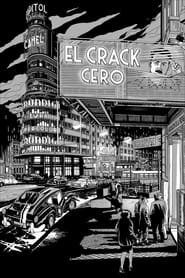 Madrid Spain 1975 shortly after the end...
Madrid Spain 1975 shortly after the end...The Crack: Inception 2019
Madrid, Spain, 1975; shortly after the end of the Franco dictatorship. Six months after the mysterious death of his lover, a prestigious tailor, a married woman visits the office of the young Germán Areta, a former police officer turned private detective, to request his professional services.
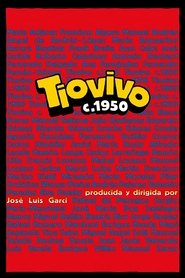 This movie doesnt have any coherent...
This movie doesnt have any coherent...Merry-Go-Round c. 1950 2004
This movie doesn't have any coherent plot. It's the portrait of the lives of different people in the hard years of post-war in Spain (the 40's), and how they manage to survive in a country desolated by the war. Like other films: La colmena or Roma (Fellini) it shows us lots of characters and some moments of their lives.
 Salva working as security guard in...
Salva working as security guard in...Leo 2000
Salva working as security guard in an industrial estate on the outskirts of Madrid. There he meets Leo, a girl who makes a living collecting cardboard. Gradually Salva be falling in love for the young, but the life of Leo holds a dark past.
 Pablo Nazareno is a 26yearold guy...
Pablo Nazareno is a 26yearold guy...The Revenge 1999
Pablo Nazareno is a 26-year-old guy who works at a science laboratory in a low work. After the mysterious death of one of the employees, weird things start to happen in the laboratory, and Pablo finds out that the lab may close. The arrival of Lucía Navarro, a beautiful computing expert, makes Pablo feel that he MUST discover what is going on in the lab... but this may put him in danger. There is only one thing that can give strength to Pablo: the love he starts to feel by Lucía.
 This 1985 Spanish film reveals one of...
This 1985 Spanish film reveals one of...Beyond the Walls 1985
This 1985 Spanish film reveals one of the many terrible aspects of 16th century Spain, still plagued by the radical Christian Inquisition, one of a plethora of difficulties Spaniards faced at the time. Spanish super star Carmen Maura plays a nun who agrees to a selfless scam, a fake stigmata, only to avoid separation from her lover, another nun. It's a serious and passionate work, highlighting the theme of outspoken women-against-repression, seen in other good gay and lesbian films. This is not a lesbian "Nun sense" or another "Dark Habits" (by Almodovar, which also starred Carmen Maura, and also set in a Spanish convent, with some lesbian nuns). Perhaps, best of all, 'Extramuros' is realistic and frank. It isn't shy about its characters' sexuality. Their sexuality, and the film as a whole are genuine.
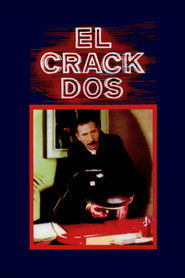 Private detective Germn Areta el Piojo...
Private detective Germn Areta el Piojo...El crack dos 1983
Private detective Germán Areta el Piojo investigates the life of a gay man who has apparently abandoned his partner. When they both turn up dead, it seems one killed the other before committing suicide, but Areta is not convinced.
 A Nobel prize winner returns to...
A Nobel prize winner returns to...To Begin Again 1982
A Nobel prize winner returns to his natal city looking for his home.
 Private detective Germn Areta el Piojo...
Private detective Germn Areta el Piojo...El crack 1981
Private detective Germán Areta el Piojo gets a terminally ill client who wishes to see his long lost, runaway daughter before he dies.
 Set in the future the story...
Set in the future the story...Murder in a Blue World 1973
Set in the future, the story follows a nurse who tries to bring her own style of relief to people condemned to die. Her identity is a mystery and she may not be quite what she seems.
 Film based on the characters of...
Film based on the characters of...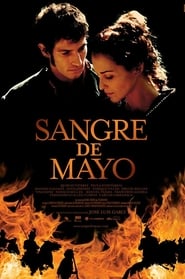 Revolution in Spain around the events...
Revolution in Spain around the events... Andrs a dowdy Spaniard goes to...
Andrs a dowdy Spaniard goes to... Yoyes the first woman to hold...
Yoyes the first woman to hold...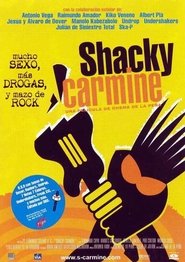
 After his son dies an elderly...
After his son dies an elderly...
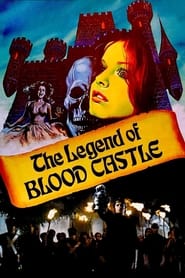 Countess Elizabeth Bathory conspires with her...
Countess Elizabeth Bathory conspires with her... A man gets trapped inside a...
A man gets trapped inside a... A group of preuniversity boys and...
A group of preuniversity boys and...